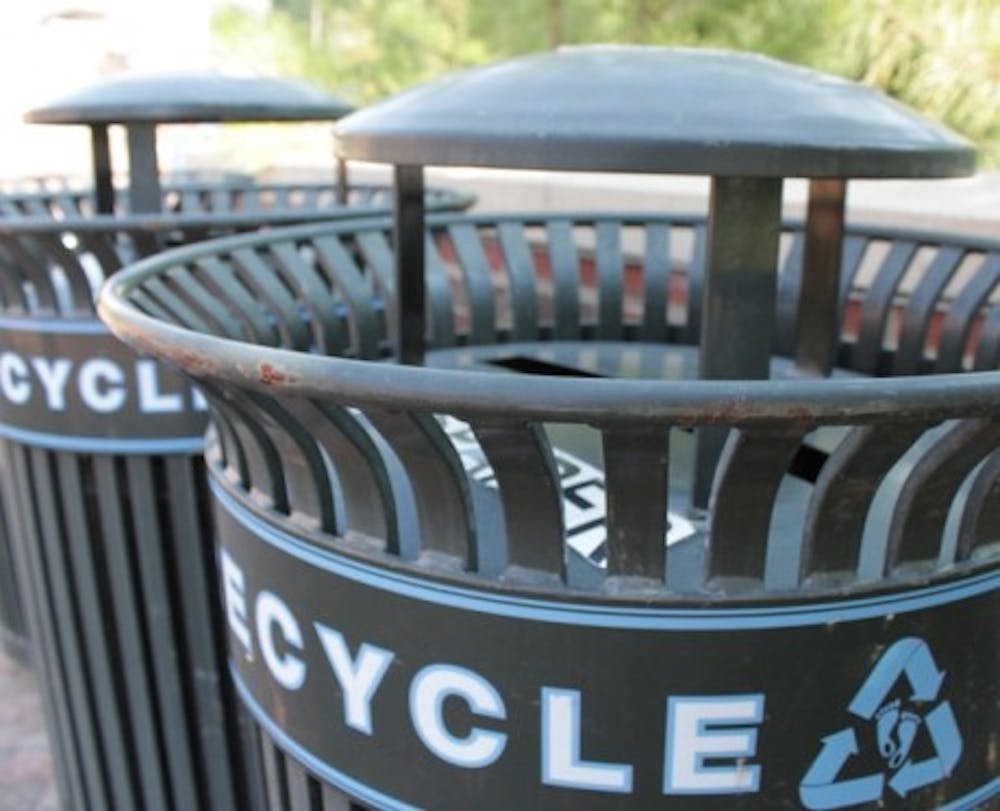Orange County is facing a recycling crisis. It’s not that people aren’t recycling enough, but that they’re recycling too much.
The recyclables are transported from waste sites in Orange County to Sonoco Recycling Raleigh, a processing plant that sorts the waste. Orange County either pays per ton based on the market value of the recyclables or receives a rebate for the recyclables.
Vendors can create products from recyclables, especially mixed paper or plastics which can be used to make packaging.
But one of the United States’ biggest recycling vendors, China, has raised the standards for what they accept in recycling. The country implemented the National Sword Act, a policy that intends to ban mixed plastic, plastics that once contained food, rigid plastics and mixed paper starting Jan. 1, 2018.
China is currently only accepting recyclables that meet a 0.3 percent or less contamination rate. The average contamination rate across the nation for products leaving facilities is much higher, which leaves the U.S. recycling market in a bind.
The biggest challenge for Orange County is what to do with rigid plastic, said Allison Lohrenz, recycling supervisor at Orange County Waste Management Administration. Rigid plastic is usually found in things like children's toys and plastic outdoor furniture.
“Currently all vendors have told us to hold off on (transporting rigid plastic) because they have nowhere to sell it to domestically and China is saying no currently,” said Lohrenz. “So we’re holding that material, (rigid plastic), after we collect it and bale it; we collect it separately than what we’re collecting at the curb. So currently we’re holding on to it and storing it in tractor trailers.”
Some say the National Sword Act presents opportunities for regional markets to become more self-sufficient.
Mary McClellan, executive director of the Carolina Recycling Association, said there are many vendors in the southeast, like Pratt Industries, which creates packaging with mixed paper.




